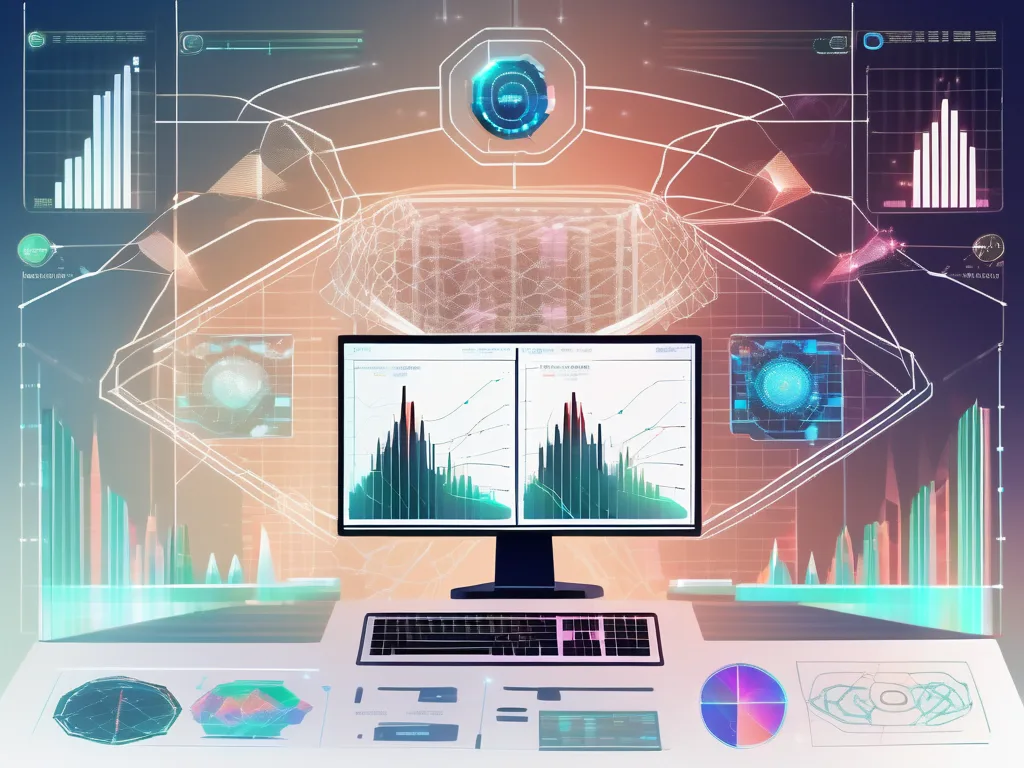
Quantum AI is revolutionizing the world of trading. By combining the principles of quantum computing with artificial intelligence, traders are now able to harness the power of advanced algorithms to make more informed decisions. In this article, we will explore the evolution of trading strategies with Quantum AI and its impact on financial markets.
Understanding Quantum AI
Before delving into the intricacies of Quantum AI in trading, it is essential to grasp the basics of quantum computing. Quantum computing is a field of study that uses quantum mechanics principles to perform computations. Unlike classical computers that leverage bits, quantum computers use quantum bits or qubits, which can exist in multiple states simultaneously due to a phenomenon called superposition.
The role of AI in quantum computing is indispensable. AI algorithms and machine learning techniques are used to analyze data and make predictions, enabling quantum computers to solve complex problems efficiently.
The Basics of Quantum Computing
Quantum computing is based on two fundamental concepts: superposition and entanglement. Superposition allows quantum computers to exist in multiple states simultaneously, exponentially increasing their computational power. Entanglement, on the other hand, refers to the correlation between qubits, enabling them to share information instantaneously.
Another crucial aspect of quantum computing is quantum tunneling, where qubits can tunnel through energy barriers, allowing for faster computation and increased efficiency. This phenomenon is a key factor in the speed and power of quantum algorithms, making them highly effective in solving complex problems that classical computers struggle with.
The Role of AI in Quantum Computing
AI plays a critical role in quantum computing by optimizing the performance of quantum algorithms. Through machine learning techniques, AI algorithms can understand patterns in quantum data, leading to improved accuracy and efficiency in quantum computations.
Furthermore, AI helps in error correction in quantum systems. Quantum computers are susceptible to errors due to factors like noise and decoherence. AI algorithms can detect and correct these errors, ensuring the reliability and stability of quantum computations. This synergy between AI and quantum computing opens up new possibilities for tackling challenging problems across various industries.
The Intersection of Quantum AI and Trading
Traditional trading strategies are based on analyzing historical price patterns and making predictions based on past data. However, these strategies often fail to capture the complexities and uncertainties of financial markets. This is where Quantum AI comes into play.
Quantum AI, at the intersection of quantum computing and artificial intelligence, represents a cutting-edge approach to trading that is revolutionizing the industry. By combining the computational power of quantum computing with the advanced learning capabilities of AI, Quantum AI opens up new possibilities for traders and investors.
Traditional Trading Strategies vs Quantum AI
Quantum AI trading strategies differ from traditional approaches in several ways. By leveraging the power of quantum computing and AI, Quantum AI algorithms can process vast amounts of data and extract valuable insights that were previously inaccessible. These algorithms can analyze real-time market data, news, social media sentiment, and a range of other factors to make more accurate trading decisions.
Furthermore, Quantum AI has the ability to adapt and learn from new data in real-time, allowing it to continuously improve its trading strategies and stay ahead of market trends. This dynamic approach sets Quantum AI apart from traditional strategies that rely on static models and historical data.
The Impact of Quantum AI on Financial Markets
Quantum AI is expected to have a profound impact on financial markets. With its ability to process large volumes of data and make predictions based on complex algorithms, Quantum AI has the potential to identify trading opportunities with higher precision and efficiency. This can lead to enhanced profitability and reduced risks for traders and investors.
Moreover, the implementation of Quantum AI in trading is reshaping the landscape of financial markets by introducing a new era of data-driven decision-making. As Quantum AI continues to evolve and mature, its influence on trading strategies and market dynamics is likely to grow exponentially, paving the way for a more sophisticated and efficient trading environment.
The Evolution of Trading Strategies
The evolution of trading strategies predates the development of Quantum AI. Throughout history, traders have relied on various approaches to maximize their profits and minimize risks.
Historical Overview of Trading Strategies
From the early days of bartering goods to the modern era of electronic trading, trading strategies have continuously evolved. Traders have developed various techniques, such as trend following, mean reversion, and breakout strategies, to capitalize on market movements.
The Shift to AI-Driven Trading Strategies
In recent years, there has been a significant shift towards AI-driven trading strategies. By using machine learning algorithms, traders can analyze vast amounts of market data and identify patterns that are beyond the scope of human analysis. This has led to increased automation and improved trading performance.
The Future of Quantum AI in Trading
As Quantum AI continues to advance, its impact on the trading industry is expected to grow exponentially. Traders and investors are eagerly anticipating the developments in Quantum AI and its potential applications in trading.
Predicted Developments in Quantum AI Trading
Experts predict that Quantum AI will enable traders to unlock new insights into market behavior and develop sophisticated trading strategies. The ability of Quantum AI algorithms to process vast amounts of data and identify complex patterns can lead to more accurate predictions and better risk management.
Potential Challenges and Solutions in Quantum AI Trading
However, with the advancements in Quantum AI trading, several challenges need to be addressed. The complexity of quantum computing requires specialized knowledge and resources. Additionally, the security of quantum algorithms and potential risks of cyber-attacks must be carefully considered.
The Benefits and Risks of Quantum AI Trading
Advantages of Implementing Quantum AI in Trading
The implementation of Quantum AI in trading offers several advantages. Firstly, the ability to process vast amounts of data allows traders to extract valuable insights and make more informed decisions. Secondly, Quantum AI algorithms can adapt and learn from market dynamics, leading to improved trading performance. Lastly, by leveraging Quantum AI, traders can potentially gain a competitive edge in the financial markets.
Potential Risks and Mitigation Strategies
Despite its immense potential, Quantum AI trading also poses risks. The volatility of financial markets and the complexity of Quantum AI algorithms can lead to unpredictable outcomes. Traders must develop robust risk management strategies and continuously monitor the performance of their Quantum AI systems.
In conclusion, the evolution of trading strategies with Quantum AI marks a significant milestone in the financial industry. The combination of quantum computing and artificial intelligence has the potential to revolutionize the way traders make decisions and manage risks. While Quantum AI presents exciting opportunities, careful consideration of its benefits, risks, and future developments is essential for traders and investors.



